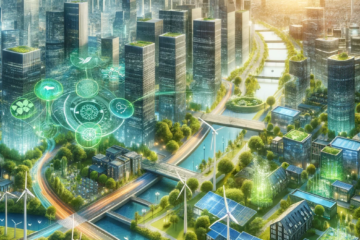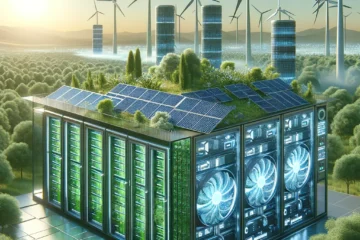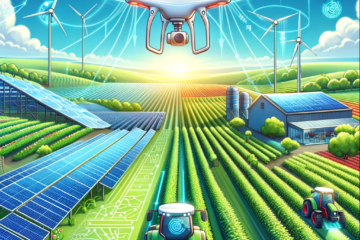As the world grapples with the escalating challenge of water scarcity, innovative technological solutions are emerging as beacons of hope. These pioneering advancements aim to optimize water usage, reduce waste, and ensure sustainability for future generations. From groundbreaking irrigation systems to revolutionary recycling technologies, this article delves into the various ways in which cutting-edge tech is transforming the landscape of water efficiency. By harnessing these developments, we stand on the cusp of a new age of water conservation, where every drop is valued and preserved.
Pioneering Water-Saving Technologies
The quest for water-saving technologies has led to the development of remarkable devices and appliances designed to minimize wastage. Faucets with touchless technology and flow rate optimization, high-efficiency toilets, and showerheads that aerate water are becoming more prevalent in households and businesses. Additionally, the emergence of greywater systems which reroute used water from sinks and showers to toilets and gardens, has seen a significant reduction in freshwater demand. These pioneering technologies reflect an increasing trend towards water-efficient products that are not only environmentally friendly but also cost-effective in the long run.
Innovative Irrigation Systems Unveiled
In the agricultural sector, innovative irrigation systems are revolutionizing the way water is delivered to crops. Drip irrigation, which precisely targets the roots of plants with the exact amount of water needed, has been a game-changer, drastically cutting down on water usage. Similarly, center pivot irrigation systems equipped with variable rate irrigation technology allow farmers to customize water application based on the needs of different crop zones. These systems, often guided by GPS and remote sensing technology, ensure that water is not just conserved, but used more effectively to boost crop yields.
Cutting-Edge Water Recycling Methods
The sphere of water recycling has seen significant advancements with the adoption of cutting-edge methods that transform waste water into clean, reusable water. Membrane bioreactors, which combine conventional wastewater treatment processes with membrane filtration, are providing superior water purification. Another promising innovation is the use of advanced oxidation processes, which involve the generation of highly reactive radicals capable of breaking down contaminants. These technologies are not only enhancing the efficiency of water recycling but also expanding the possibilities of reusing water in various sectors.
Smart Sensors: The Future of Conservation
Smart sensor technology has become an integral part of water conservation strategies, with sensors now able to monitor soil moisture, detect leaks, and even predict water usage patterns. These sensors are often connected to automated systems that can adjust water flow in real-time, reducing waste and enhancing efficiency. In urban areas, smart water meters provide detailed insights into water consumption, enabling both utilities and consumers to better manage and conserve water. As these sensors become more sophisticated and interconnected, the potential for smart, data-driven water conservation strategies becomes ever more attainable.
Advances in Drought-Resistant Crops
Genetic engineering and biotechnology are paving the way for the development of drought-resistant crops, which promise to sustain agricultural productivity in water-limited environments. By isolating and introducing drought-tolerance genes, scientists are creating plant varieties that require less water without compromising yield. These crops not only hold the potential to mitigate the impact of drought on food security but also reduce the agricultural sector’s overall water footprint. As research continues, the future could see a diverse range of crops engineered for resilience in the face of changing climate patterns.
Efficient Water Management Software
The emergence of water management software is supporting water efficiency efforts by providing tools for analysis, monitoring, and predictive modeling. These software platforms enable water managers to optimize the distribution and usage of water resources across various applications. With features such as real-time data analytics, leak detection alerts, and predictive maintenance scheduling, these systems are essential for maintaining a sustainable balance between water supply and demand. As these platforms become more user-friendly and integrated, they are set to become a cornerstone of water management strategies worldwide.
In conclusion, the wave of revolutionary technologies for water efficiency holds the promise of a more sustainable and water-secure future. By embracing these innovations, we can significantly reduce our water footprint, protect our natural ecosystems, and build resilient infrastructures capable of withstanding the challenges posed by a changing climate. As stakeholders from governments to individual consumers adopt these progressive solutions, we move closer to a world where water is not just a resource, but a cherished and efficiently managed asset. The journey towards water sustainability is complex and ongoing, yet with these technologies at our disposal, it is a goal well within our reach.




